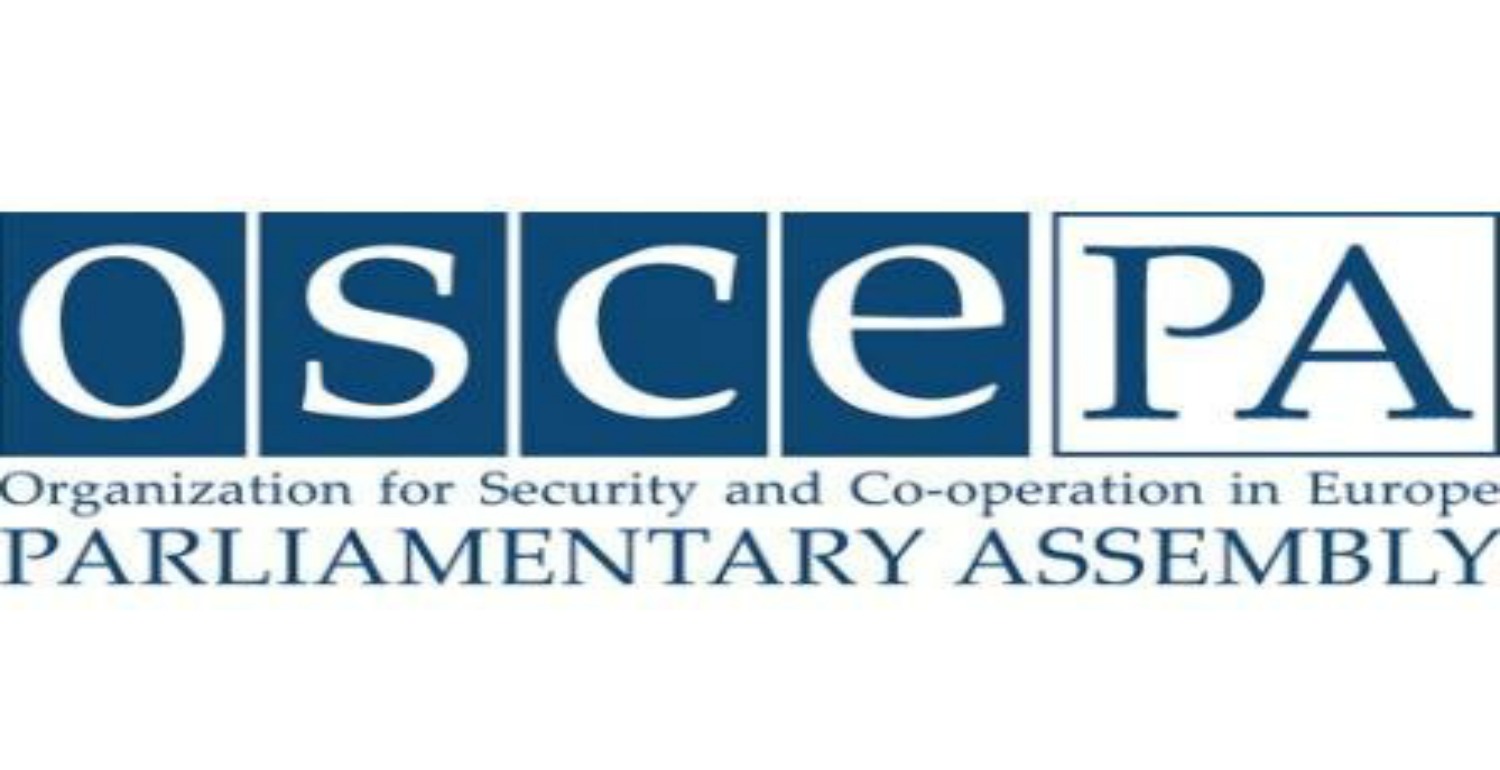By Robert Hand, Staff Advisor
The Parliamentary Assembly of the Organization for Security and Cooperation in Europe (OSCE PA) met in Vienna, Austria, on February 22 and 23 for its sixth annual winter meeting. The U.S. Delegation to the meeting was led by Helsinki Commission Chairman Alcee L. Hastings (D-FL), who is also serving as President Emeritus of the OSCE PA. The delegation included Representatives Mike McIntyre (D-NC), a Helsinki Commissioner, and Hilda L. Solis (D-CA).
Setting an Agenda for Future Activity
Created in 1991, the OSCE PA holds an annual session every July as its principal forum to debate issues and adopt a declaration. In 2002, however, the Assembly added a short winter session to prepare for the July session. Rapporteurs from each of the three general committees that parallel the OSCE security, economic and human dimensions discussed their preparations for the annual session to be held from July 5 to 9 in Kyiv, Ukraine, while the standing committee, chaired by Assembly President Goran Lennmarker of Sweden, formally approved Kazakhstan to be the host of the 2008 annual session.
The committees heard from a variety of OSCE officials, including the OSCE Secretary General, the Representative on Freedom of the Media, the High Commissioner for National Minorities, the Head of the OSCE Mission in Kosovo and the Director of the Office for Democratic Institutions and Human Rights. In an unprecedented step for an OSCE Chair-in-Office, Spanish Foreign Minister Miguel Angel Moratinos decided not to attend the Winter Meeting, sending his special envoy instead.
The first committee focused primarily on implementation of the OSCE PA’s Brussels Declaration adopted in 2006, noting ongoing discussion of OSCE reform issues including the role of the Parliamentary Assembly and support for OSCE field missions. Developments in the Balkans, especially Kosovo, as well as in Moldova and Afghanistan were also discussed. Rep. McIntyre inquired about the ability of the OSCE field mission in Kosovo to adapt to changing circumstances, and expressed hope that OSCE norms, particularly regarding human rights, would be respected there no matter what decisions are made regarding Kosovo’s status.
The second committee looked forward to the Kyiv annual session where it intends to focus on immigration and its effect on a country’s development, immigration policy responses and the potential for OSCE activity on immigration issues.
The third committee raised a wide range of items to be considered in Kyiv, including gender equality, media freedom, combating organized crime through the rule of law and transparency, poverty, and the political and social rights of immigrants. The U.S. delegation expressed interest in focusing on the rights of immigrants, an issue that is expected to be addressed in both the second and third committees.
Additional discussion during the PA meeting focused on OSCE election observation, an area in which the OSCE has traditionally taken a leading role among other international institutions. Recent election observation missions have brought to light institutional friction between the PA and the OSCE’s Office for Democratic Institutions and Human Rights (ODIHR). The PA provides parliamentarians to lead short-term observing with their strong political instincts, considerable observation experience and high-profile presence, while ODIHR provides many additional short-term observers to enhance election day coverage as well as technical experts and a long-term observation effort. Both are needed, but differing perspectives and interests are beginning to threaten the success of the entire observation effort. Parliamentarians lamented the degree to which implementation of a 1997 agreement providing the basis for cooperation in the field has deteriorated, and many hoped the Spanish Chair-in Office would help the two OSCE bodies resolve their differences and ensure that future observation missions are conducted in accordance with the agreement.
Debating “Energy Security”, a Vital Issue of Today
The three committees convened together for a special debate on energy security in the OSCE area. Speaking for the U.S. Delegation, Rep. Solis argued that to truly achieve energy security, there needs to be increased transparency and predictability in energy supply on the one hand, and aggressive action to cut energy use and reduce emissions on the other. Adding that energy security and climate change ultimately must be addressed together, she highlighted initiatives taken in her home state of California as well as recent initiatives in the U.S. Congress. Rep. Solis concluded her remarks by calling for a global approach that “not only promotes energy security, but environmental security as well.” Other delegates similarly focused on the need for increased transparency in the energy sector and expressed concern about use of energy as a political instrument.
Addressing Mediterranean Issues
Chairman Hastings, in his role as the OSCE PA Special Representative on Mediterranean Affairs, hosted a dinner during the winter session in Vienna to find ways to enhance security in the Mediterranean region through the partnership between countries in the region and the OSCE and its Parliamentary Assembly. Representatives from the parliaments and foreign ministries of Egypt, Israel, Jordan, Morocco, Algeria, and Tunisia joined the U.S. Delegation in discussing how their countries could benefit from OSCE and PA work to promote political dialogue, democracy, rule of law, and economic stability. Secretary General of the OSCE PA Spencer Oliver, PA Treasurer Jerry Grafstein, representatives of the OSCE Spanish Chairmanship, as well as the Finnish Chairmanship of the OSCE Partners Group also participated. Mr. Hastings proposed using the OSCE and the PA as a framework for increased informal dialogue among the countries in the region, and also discussed greater involvement in OSCE work to combat anti-Semitism and discrimination against Muslims.








